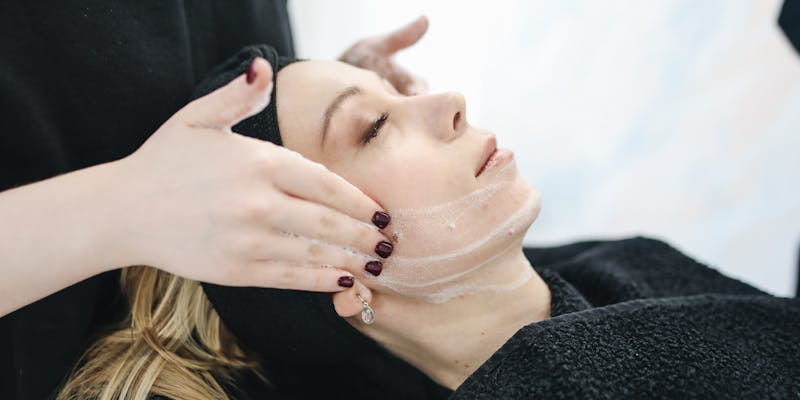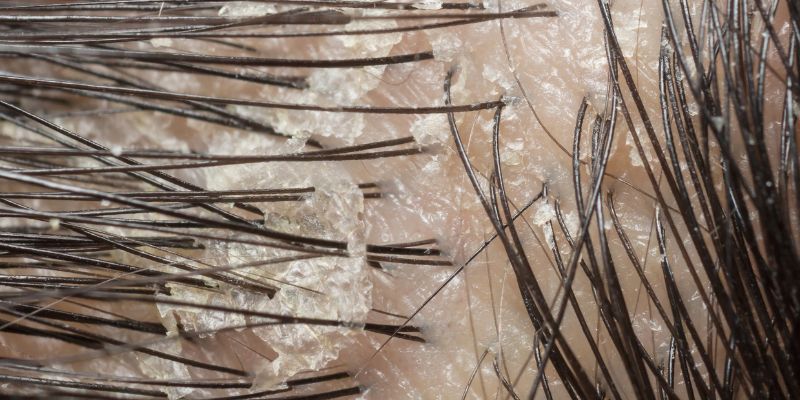Skincare is very important in maintaining the health as well as appearance of our skin. Our skin is a barrier to keep out harmful substances such as bacteria and UV radiation. Taking proper care of the skin keeps it firm and healthy, which boosts our self-confidence.
Stress and exposure to cold, wet weather can also trigger skin irritation. It may become red, irritated, or develop pimples. This occurs because our skin responds to external stimuli. In this article, we will discuss the amazing calming techniques that will soothe your irritated skin. If you are interested, you are at the right place. Continue reading!
What is Skin Irritation?

Skin irritation is a skin condition in which redness, itching, and inflammation appear on the skin. Numerous factors, including stress, frequent weather changes, and pollution exposure, can cause skin irritation. These factors have the potential to irritate, redden, or even tear our skin.
This can worsen already present skin conditions like eczema or acne, as well as lead to the development of new ones. Therefore, it's critical to treat irritated skin as soon as possible to prevent worsening of the condition.
Effective Ways to Calm Your Skin
There are numerous calming techniques for irritated skin, and some of the most effective methods are discussed below.
Moisturize
Moisturizing is essential for relieving inflamed skin. Moisturizers help to restore the moisture barrier of the skin by preserving appropriate hydration levels. Several things, including severe weather, environmental toxins, or over-cleansing, can weaken this barrier. It's essential to choose a mild and fragrance-free moisturizer because perfumes may irritate sensitive skin.
Ceramides, glycerin, and hyaluronic acid are especially helpful in relieving inflamed skin. Potent moisturizer hyaluronic acid draws and holds moisture, keeping skin supple and moisturized. To prevent the skin from being dry and flaky, glycerin also acts as a humidifier, attracting moisture from the surrounding air into the skin.
Lipids called ceramides help preserve and repair the epidermal's natural barrier, reducing moisture loss and improving skin hydration. These components combine to moisturize, calm, and heal the skin in a way that promotes a more stable and healthy complexion.
It's essential to consider your skin type's unique requirements and any potential allergies into account when selecting moisturizers for irritated skin. For sensitive skin, look for items labeled as non-comedogenic and appropriate to reduce the chance of irritation. Furthermore, adding moisturizing products to your skincare routine can help soothe and nourish inflamed skin.
Apply Cold Compress
Cool compresses are an easy yet practical approach to soothe inflamed skin. It is one of the most amazing calming techniques to soothe your skin. Applying cool pressure to the affected area helps to narrow blood vessels, which lessens swelling and irritation. Furthermore, the cooling sensation might offer fast relief from burning, itching, and discomfort.
Soak a clean towel in cold water to begin making a cool compress. You can alternatively use ice packs covered in a towel to prevent ice from coming into direct contact with the skin and increasing discomfort. For a few minutes, gently massage the cool compress on the inflamed area, enabling the cold temperature to penetrate into the skin and reduce symptoms.
Cool compresses work especially well in relieving irritation of skin caused by sunburn, allergic responses, or skin disorders like psoriasis or eczema. They may also help lower redness and improve healing by calming the inflammation caused by acne.
Cool compresses should only be applied with extreme caution to skin that is delicate or compromised, as prolonged exposure to the cold can cause discomfort or even frostbite. Just give the application a few minutes, then observe how your skin reacts. If you encounter any negative reactions or worsening symptoms, stop using the cool compress and get further guidance from a medical practitioner.
Avoid Irritants
To keep your skin healthy and prevent discomfort, you must avoid irritants. Commonly present in skin care items, detergents, and cosmetics, harsh chemicals, perfumes, and these allergens may worsen sensitive skin. They can cause irritation, itching, irritation, or other negative reactions. To lower the chance of irritation, it's essential to recognize these possible triggers.
It's important to be aware of potential irritants from other sources beyond skincare products, like fabric softeners, laundry detergents, and clothing fabrics. Instead of using fabric softeners that may leave a residue on clothing that might irritate the skin, choose gentle, fragrance-free detergents. Choose clothes made of breathable, soft materials like bamboo or cotton instead of those that are likely to irritate or cause friction.
You can reduce the chance of skin irritation and encourage a healthier, more pleasant complexion by being aware of potential irritants. You can make well-informed choices about the items you utilize and everything that you come into contact with.
Consume Anti-Inflammatory Foods

Diet significantly impacts skin health; eating the correct foods can reduce inflammation and encourage a more radiant complexion from the inside out. While avoiding foods that can aggravate inflammation or cause allergies is essential, including anti-inflammatory foods in your diet can help calm the inflamed skin and lessen symptoms like redness and itching.
Omega fatty acids, which are abundant in oily fish like mackerel, salmon, and sardines, have potent anti-inflammatory effects. These fatty acids can lessen skin irritation and help control the body's inflammatory response, which can help with psoriasis and eczema. Furthermore, omega-3s keep the skin moisturized and supple by supporting the preservation of the skin's moisture barrier.
Vibrant fruits and vegetables, such as citrus fruits, berries, and leafy greens, are especially rich in antioxidants like flavonoids and vitamin C, which support healing and shield the skin from damage from free radicals. To reduce inflammation and to get better skin, it is essential to have food that contains anti-inflammatory ingredients.
Another critical component of a diet that reduces inflammation is nuts and seeds. Along with vitamins and minerals that support skin health, like zinc, selenium, and vitamin E, they are also rich in protein, fibers, and healthy fats. Nutrients that help lower inflammation and encourage skin regeneration can be found in a wide range of nuts and seeds, including almonds, walnuts, flaxseeds, and chia seeds.
Conclusion
Taking good care of your skin is very essential. It might be irritating when your skin becomes inflamed, but there are simple calming techniques to make it feel better. Simply apply a cool cloth, use a little moisturizer, stay away from harsh chemicals, and consume fruits and fish, which are nutritious meals. These few steps can maintain pleasant, calm skin.







